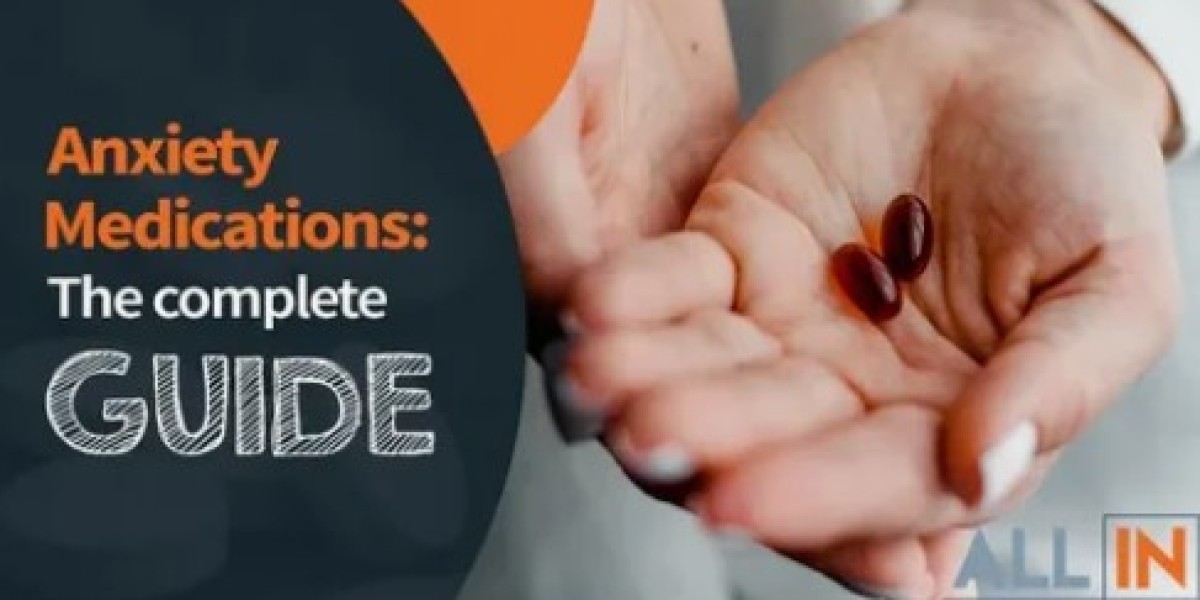Attention-Deficit/Hyperactivity Disorder (ADHD) is a neurodevelopmental condition that affects millions of adults worldwide. Symptoms like inattentiveness, hyperactivity, and impulsivity can significantly impact daily life, work, and relationships. When ADHD occurs alongside anxiety, treatment becomes more complex, requiring careful consideration of medications that address ADHD symptoms without exacerbating anxiety. In this article, we will explore the best ADHD medication for adults with anxiety, factors to consider, and strategies to manage both conditions effectively.
Understanding ADHD and Anxiety in Adults
ADHD is often associated with childhood, but it frequently persists into adulthood. Adults with ADHD may struggle with time management, organization, impulsivity, and maintaining focus. Anxiety disorders, including generalized anxiety disorder, social anxiety, and panic disorder, often co-occur with ADHD, affecting up to 30-50% of adults with the condition.
The co-occurrence of ADHD and anxiety presents a unique challenge: some ADHD medications, especially stimulants, can sometimes worsen anxiety symptoms. Therefore, finding the right medication is critical for achieving optimal results without triggering additional stress or nervousness.
Factors to Consider When Choosing ADHD Medication with Anxiety
When selecting ADHD medication for adults with anxiety, several factors must be considered:
- Type of ADHD Symptoms: Are inattentiveness and distractibility more problematic, or is hyperactivity and impulsivity the primary concern?
- Severity of Anxiety: Mild anxiety may tolerate stimulants better, whereas severe anxiety may require non-stimulant options.
- Medical History: Pre-existing conditions, heart problems, or sensitivity to stimulants may influence medication choice.
- Medication Interactions: Adults taking anti-anxiety medications or antidepressants must consider potential drug interactions.
- Lifestyle and Preferences: Some medications are long-acting, which may be convenient for adults with busy schedules, while others require multiple daily doses.
Stimulant Medications: Pros and Cons
Stimulants are the most commonly prescribed medications for ADHD, including methylphenidate (Ritalin, Concerta) and amphetamines (Adderall, Vyvanse). They work by increasing dopamine and norepinephrine levels in the brain, improving focus, attention, and impulse control.
Pros of Stimulants:
- Rapid onset of action
- High effectiveness in reducing ADHD symptoms
- Available in various forms (short-acting, long-acting)
Cons for Adults with Anxiety:
- Can increase heart rate and blood pressure
- May worsen anxiety, jitteriness, or insomnia
- Requires careful dosage adjustments
Some adults with mild anxiety can tolerate low doses of stimulants, especially when paired with therapy or anxiety management strategies. However, in adults with moderate to severe anxiety, stimulants may not be the ideal first choice.
Non-Stimulant Medications: A Safer Alternative for Anxiety
Non-stimulant medications are often preferred for adults with ADHD who also have anxiety because they are less likely to exacerbate anxiety symptoms. Common non-stimulant options include:
1. Atomoxetine (Strattera)
Atomoxetine is a selective norepinephrine reuptake inhibitor (NRI) that helps improve focus and reduce impulsivity without the stimulant side effects.
Benefits:
- Less likely to increase anxiety or insomnia
- Can also improve mood in some patients
- Once-daily dosing
Considerations:
- May take several weeks to reach full effectiveness
- Possible side effects: nausea, fatigue, or mild appetite loss
2. Guanfacine (Intuniv) and Clonidine (Kapvay)
Originally developed for high blood pressure, these medications help with hyperactivity, impulsivity, and emotional regulation.
Benefits:
- Can reduce anxiety and agitation
- Helpful for sleep difficulties
- Can be combined with stimulants if needed
Considerations:
- May cause drowsiness or low blood pressure
- Often used as adjunct therapy rather than first-line treatment
3. Bupropion (Wellbutrin)
Bupropion, an atypical antidepressant, can improve ADHD symptoms and may benefit adults with comorbid anxiety or depression.
Benefits:
- Non-stimulant, low risk of worsening anxiety
- Can boost motivation and energy
- Once or twice daily dosing
Considerations:
- Not suitable for individuals with seizure disorders
- May increase anxiety in some sensitive patients
Combination Therapy: Finding the Right Balance
In some cases, a combination of medications and therapy is the most effective approach. For example:
- Stimulant + SSRI (Selective Serotonin Reuptake Inhibitor): For adults whose anxiety worsens with stimulants, an SSRI like sertraline or escitalopram can help manage anxiety while the stimulant addresses ADHD symptoms.
- Non-Stimulant Monotherapy: Adults with severe anxiety may start with atomoxetine or bupropion alone.
- Behavioral and Cognitive Therapies: Medication often works best when paired with cognitive-behavioral therapy (CBT) to develop coping strategies, improve time management, and reduce anxiety triggers.
Lifestyle and Non-Medication Strategies
Medication alone is rarely enough to manage ADHD and anxiety effectively. Adults with these conditions can benefit from lifestyle modifications, including:
- Regular Exercise: Physical activity increases dopamine and serotonin, improving focus and mood.
- Mindfulness and Meditation: Reduces stress and anxiety while improving attention.
- Structured Routines: Daily schedules, to-do lists, and planners can help manage ADHD symptoms.
- Sleep Hygiene: Adequate rest is crucial, as sleep deprivation worsens both ADHD and anxiety.
- Diet and Nutrition: Balanced meals, hydration, and limiting caffeine can improve focus and reduce anxiety.
Working with a Psychiatrist or ADHD Specialist
Choosing the best ADHD medication for adults with anxiety requires individualized care. A psychiatrist or ADHD specialist can evaluate symptoms, medical history, and personal preferences to create a tailored treatment plan. This often involves:
- Starting with a low dose and gradually adjusting
- Monitoring side effects and effectiveness
- Coordinating therapy or counseling for anxiety
- Providing education on coping strategies and lifestyle modifications
Regular follow-ups are critical to ensure that the treatment plan remains effective and safe.
Conclusion
Managing ADHD in adults with anxiety is a delicate balancing act. While stimulants remain highly effective for ADHD symptoms, they may not be suitable for everyone due to the risk of worsening anxiety. Non-stimulant medications like atomoxetine, guanfacine, clonidine, and bupropion offer viable alternatives that address ADHD symptoms with fewer anxiety-related side effects.
The best ADHD medication for adults with anxiety depends on individual symptoms, anxiety severity, medical history, and lifestyle considerations. Combining medication with therapy, behavioral strategies, and lifestyle adjustments provides the most comprehensive approach to improving focus, productivity, and overall quality of life.
If you suspect you have ADHD and struggle with anxiety, consulting a qualified psychiatrist or ADHD specialist is the first step toward finding the right treatment plan. With the right approach, adults can manage both conditions effectively and lead balanced, fulfilling lives.








